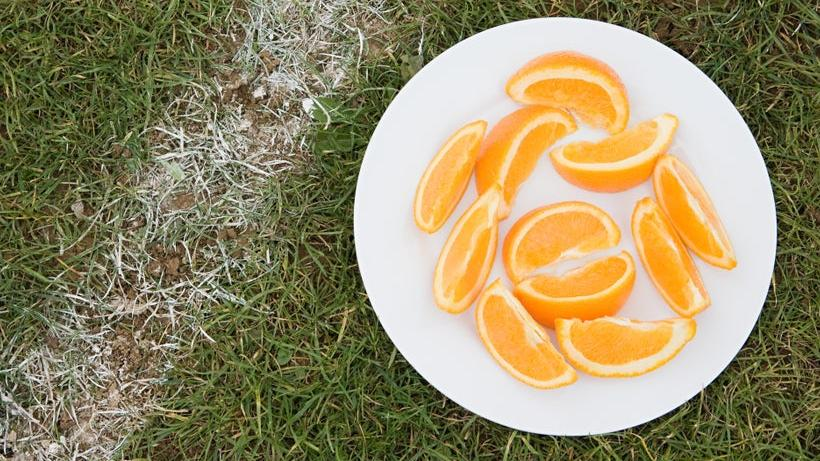Why Orange Slices Are The Quintessential Halftime Snack
This go-to snack blends science, tradition, and practicality.
Despite being very bad at it, I played soccer for seven years as a child. Every single Saturday, we'd suit up and fight off heat exhaustion in the California sunshine. And every single halftime, the mom (always the mom) assigned to snack duty would pull out the plastic container full of orange slices and we'd fight each other for the least pulpy ones.
Now I'm that snack mom, about to embark on my first ever Saturday of hell fun. I'm wondering, because no one told me and I'm afraid to look silly in front of the sportier moms, if I'm supposed to bring orange slices or if we've deviated from the tradition. I'm also wondering if we serve orange slices for any real reason. Is it because they're cheap and easy to dole out quickly? Is it because it's fun to hold the rind in your mouth and make an orange smiley face? Or is there a scientific basis for serving citrus fruit?
Oranges are the best, according to science
Soccer blog The Pitch Is Ours explains that there's a real, scientific reason oranges have held the halftime spotlight at soccer matches. While I am correct that oranges are cheaper than bars and energy drinks, they're also better for you than those sugared-up products.
The spike in blood sugar from more processed products can lead to the all-too-familiar sugar crash, something you do not want during the second half of a game. Plus, the vitamin C in orange slices is great for recovery from illness, yes, but also helps you recover energy during a short soccer game.
Oranges contain a good amount of potassium, which is one of those minerals known to help your muscles do their thing. Bananas are an oft-cited source of potassium, but the lighter, more water-filled oranges are preferred by athletes during periods of activity. I've heard that surgeons scarf bananas to steady their hands before surgery, but I can't find real evidence of that and my surgeon friend is busy being a surgeon and it's possible my mom just told me that myth to get me to eat potassium-rich foods.
Unlike sports drinks, oranges have carbohydrates, which are good for you when you're exercising, so they have an advantage over pure fluids. Oranges are packed with vitamins and minerals, all of which help athletes of all ages. Not only do they make an ideal mid-game pick-me-up, but they might help you cure your allergies, too.
Backlash to halftime orange slices
Recently, some parents have shifted away from the orange slices: they were banned from several fields in Australia at the advice of dentists, who said the acid caused tooth decay. Bafflingly, the adults still wanted to replace some sugar in the players, so it was suggested they give the kids non-acidic candy on the sidelines instead. Maybe I'm biased because I grew up watching Little Shop of Horrors and then married and divorced a dentist, but I think maybe the dentists floated the suggested to drum up business. Candy can't be better than fruit.
In the world of child snack trends, oranges are not hot right now. Tiny oranges, maybe. Apples, sure. Strawberries, you betcha. But I can't think of the last time I saw a kid go for an orange slice on the fruit plate. Plus, after running around on a field, my kid is far more likely to go for orange crackers of the goldfish or bunny variety than an orange fruit.
Orange slices are simply tradition
Even though some people don't love them, the tradition wins out for many sports fans, including at the NFL, where orange slices often make an appearance at halftime. In fact, the NFL is required to provide three dozen oranges per game. Some people think it's because they're superstitious about deviating from the usual snack.
According to Florida Fruit Shippers—a group that, like dentists, is looking out for number one—eating oranges has been a tradition since the 1950s in England and encourages athletes to keep it up. Perhaps it's tradition more than anything else that keeps oranges in the rotation instead of other fruits or snacks. And in the age of allergies, intolerances, and vegan children, oranges are one thing most kids can eat. Either way, I need to go to the grocery store before Saturday.
